A great career lesson from Z100’s syndicated morning show host: successful radio personalities are also letting others shine, not just themselves.
In an excellent masterclass at Radiodays Europe 2018, hosted by John Simons, attendees had a chance to ask Elvis for advice on how to create successful morning show and become a popular radio personality. About the essence of self-belief, listener cheerleading, open mindedness and good intentions: “If I don’t feel like we’ve helped someone that day or made people feel things, we wasted a day.”
“I was going to ‘die’ anyway”
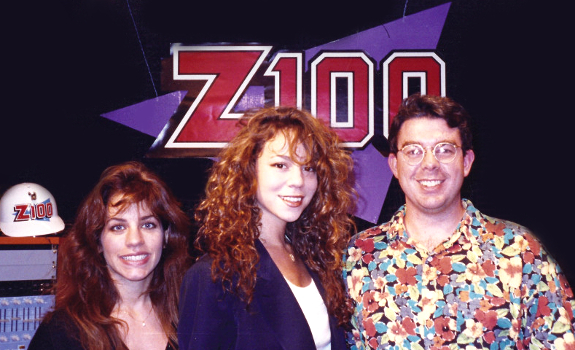
Starting off his morning show at a ratings low turned out to be liberating for Elvis Duran, here with Mariah Carey and a radio colleague in 1990, when he was hosting afternoons (image: Z100)
Expand your professional horizon
Elvis is more than just radioactive. TV is part of his career as well; partly because it’s a brand extension with lots of impact. “If I’m ever stopped at the airport, it’s because of something they saw; it’s never because of something they heard.” And there is another reason: “It’s great to do anything outside your comfort zone. It’s fun to do something different; to get out of the studio for a few hours and do something I know nothing about.”
Be your best self
In his opinion, we should not be too concerned about the competition. “Ignoring them; staying in your own lane is really the best advice. I would never tell anyone to counter against what they’re doing across the street.” In that regard, he does believe in staying within a comfort zone. “I want all of us to do just what we do best every day. If it’s needed, it will work; if it’s not, they’ll fire us. You need to do what’s in your range of comfort. That’s how you shine.” He also has a refreshing look on the often-assumed need for a USP. “If the show across the street is almost identical to yours, who cares? Just be the best of who you are.”
Follow your gut instinct
Elvis Duran recalls having a slow start when Tom Poleman assigned him to the Z100 morning slot in the mid-1990’s. “We were number 18 in the market, and after a year we were number 19… They were about to fire us, and then they brought in Dennis Clark, who saved my career; saved our radio station.” He sighs, and continues: “I finally got the courage just to do what I thought was right. I had no other choice; I was going to ‘die’ anyway, and it worked.”
“Be their cheerleader non stop”
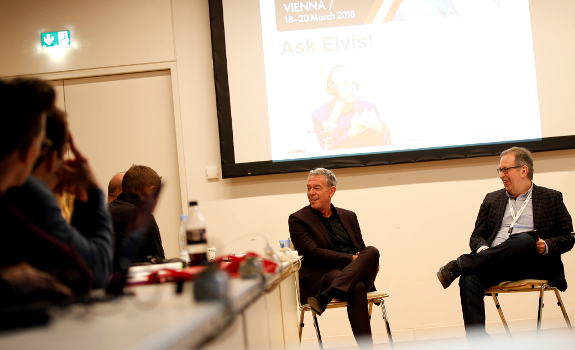
As listeners come and go all the time, shows need to deliver all the time (image: Conor McCabe)
Develop your self-belief
He makes clear that it’s not just about believing in yourself; it also about getting others to do the same. “Managing your management is the most difficult part, because they’re under the gun. Your program director [is being] told every day: ‘You’ve got to fix this. Whoever you bring in, they better be good!’. They’re under this pressure, too.” While seeing the importance of strategy, his advice is to use your inner voice as a guide. “You really have to believe in you.”
Include your passion topics
I helps when you talks about what you’re passionate about: “If I start talking about radio for a few minutes, I’ll start crying, because I just love being able to go into that studio with something I am excited about. I can’t wait to get on the air every morning and share what’s in my heart that day. Some of the best advice I was ever given, was with my father: ‘believe in what you’re saying, and others will believe in you’. People hear enthusiasm in your voice.” Elvis thinks (and I agree) that we are also there to uplift our listener’s lives:
Match your listener’s rhythm
Elvis points out that as morning shows, we may have listeners only for 20 minutes every day, most likely during their daily commute, which means that we always have to be on top of our game. “We’re on for four hours, so we assume: ‘If we do something funny at 6am, we don’t have to be funny again until 8.30’. Well, no… they’re coming and going, and you have to be their cheerleader non stop.”
“I’m never afraid of change, ever”
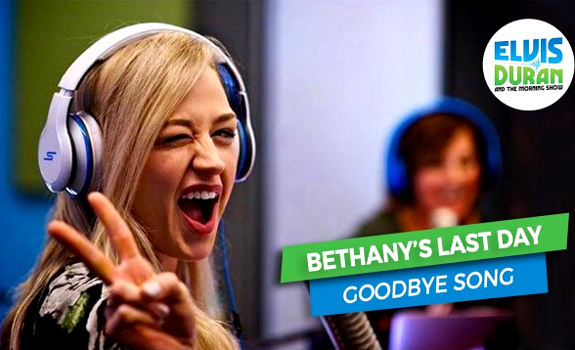
Bethany Watson recently left Elvis Duran & The Morning Show (image: YouTube / iHeartMedia)
Help your co-presenters shine
An Irish program director shares perceptual research about her morning show duo — consisting of what sounds like the combination of an extraverted female and an introverted male. Listeners like the woman, but don’t really know the man, even though he’s on air longer than his female colleague. Duran’s advice is to open him up by letting her take the lead in a bit during the show, designed to release the other person’s resistance to share:
Measure your past performance
When talking about the value of perceptual research, Duran compares it with perfume that you can still smell, even though the person has already walked by: “It gives you a scent; a sense of kind of where you sit with some people; not everyone! It’s good to get an opinion. That’s all it is. And it is history; it’s what you did.” Even though research can be confronting, he appreciates it, because knowing where you’ve been may help you to get to where you want to be:
Embrace your show’s development
His team member Bethany Watson has recently left the show, something that he sees as a great loss, but also as an exciting opportunity: “I love change; it’s one of my favourite parts of what we do. When someone comes in and pulls the rug out from underneath you, it makes you wake up and pay attention. Every time we’ve lost someone, our ratings went up; every time we’ve been sold from one company to another or told ‘We’re going to syndicate now; you’ve got to be different’, it’s always been for the better. I’m never afraid of change, ever.”
“Those emotional shows are so important”
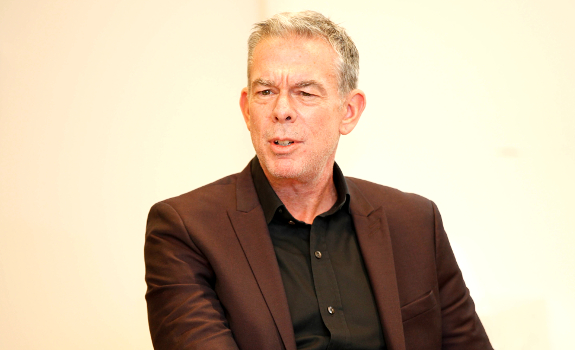
Elvis Duran sees them as a chance to give devastating events a positive turn (image: Conor McCabe)
Audition your potential hires
Rather than looking for the same kind of person to replace a team member who has left, he’s looking for someone who best fits the team. “When I hire someone new for a show, I get drunk with them! If they don’t drink, then we’ll smoke pot, hahaha; no. I just want to take them out of this structure, and go out and live with them; go see a show with them; see how they hang out. That’s the best audition to me; just seeing if they’re a good person. We need good people in there, because we’re stuck with them for four hours a day.” Elvis modestly says that the only thing he can take credit for, is being great at surrounding himself with great people who run the show.
Benefit your community causes
How do he and his team deal with sensitive subjects, like the high school drama in Parkland, Florida? “It’s rough. Who am I to go on the radio and try to have a good show when there’s a mom out there whose best friend has lost a daughter in a school shooting? Walking in on the day after, I was thinking: I don’t want to talk about gun control, even though it’s so important. Today’s the day we talk about schools; about teachers; about students. Let’s raise them up.” He decided to turn a tragedy into an opportunity through a $30,000 fundraiser for American teachers at poor schools who have limited resources. “What can you do [to make a difference] from your heart?”
Increase your show’s relevance
“Those emotional shows are so important. That’s when you have an opportunity to do the best work, and feel very satisfied. The days that I walk out of the studio and don’t feel fulfilled; those are the worst shows. If I don’t feel like we’ve helped someone that day or made [people] laugh, cry, or whatever — made them feel things — we wasted a day.” It was 9/11 that reminded him of how relevant the medium of radio actually is. A day before, he wanted to quit his job. That all changed after the planes hit the Twin Towers, and the massive listeners response as to how essential Z100 and the morning show team were for them to get through those days:
Continues in part 2!
Header image: Thomas Giger

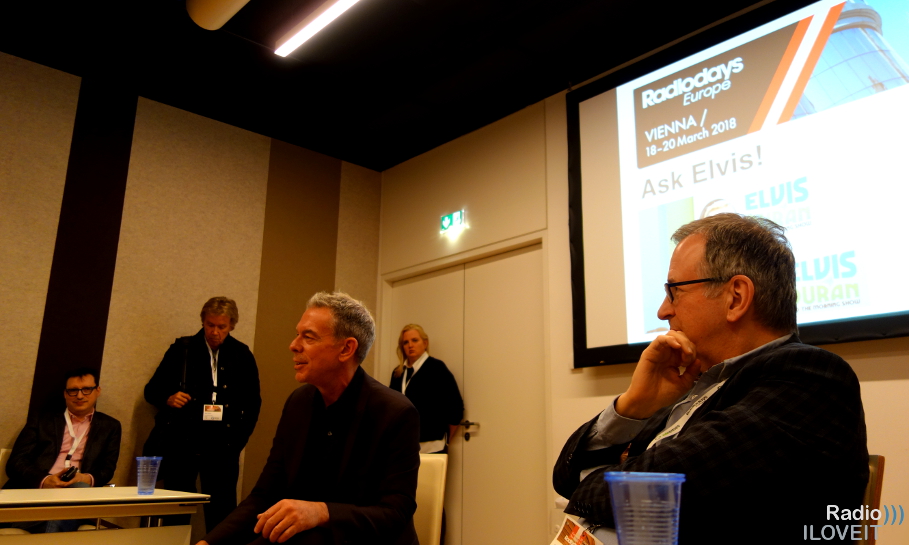




Add Your Comment